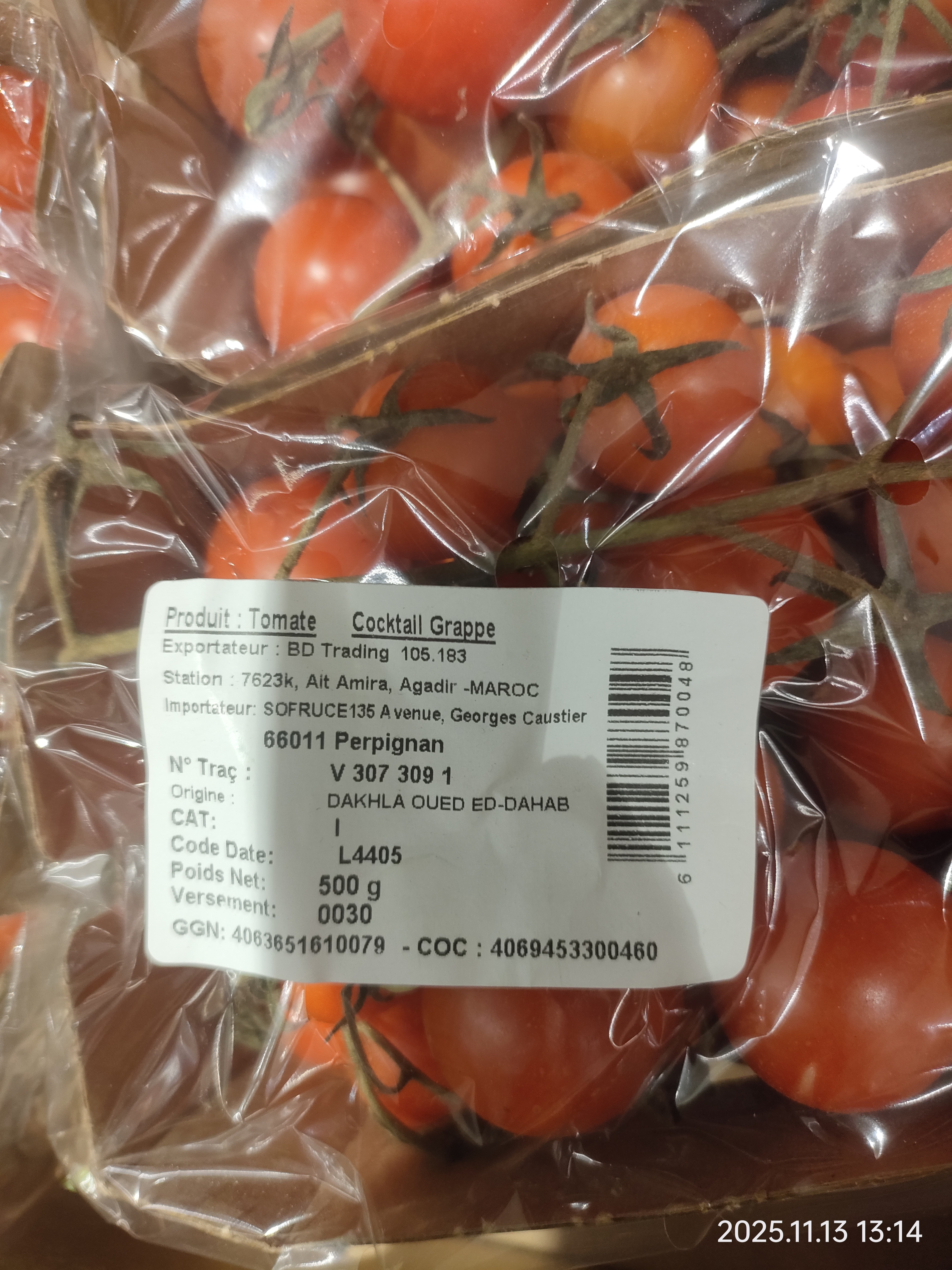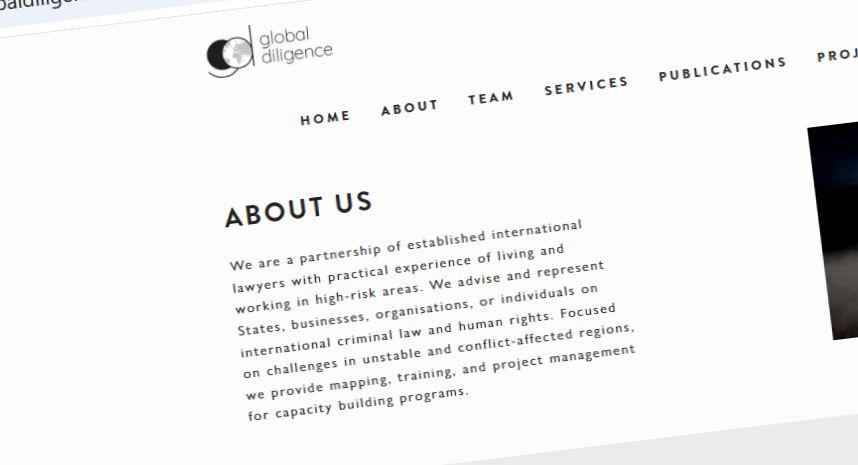
Throughout its impact studies, relations with the Moroccan government and partners, and a recent announcement of arrival of windmills to occupied Western Sahara, Engie has shown a total disregard for the UN's approach to the conflict.

"Great news for our Dakhla Wind Energy Company (DAWEC) in #Morocco", French company ENGIE wrote on LinkedIn on 11 August 2023.
As the company is setting up 72 MW of windmills for a desalination plant, it announced that it is “helping Morocco to reduce water stress and achieve carbon neutrality”.
No mention is made to the fact that the Dakhla desalination programme is not being implemented in Morocco at all, but in occupied Western Sahara.
In the same social media post, the company announced that a shipment of windmills was on its way, supplied by Envision Energy in China. Western Sahara Resource Watch (WSRW) on 15 September published images of the arrival of this first ship to Tenerife, where the mills are seen in transit before being forwarded to the occupied territory. On 25 September, the first ship arrived to the territory with windmill components.

The Engie post also shows that the foundations for the arriving windmills have already been completed in the territory. This can be confirmed by fresh satellite pictures from Google, showing the location 130 kilometers north of Dakhla.
WSRW has raised a number of questions with Engie which have not yet been responded. The main concern is why Engie believes it has the right to enter into agreements with Morocco for a desalination plant in Western Sahara, considering that Morocco has no legal mandate to be in the occupied territory, and that the Saharawi people has an internationally recognised right to self-determination.
In its letter to WSRW on 13 April 2021, Engie wrote that “Since the beginning of the discussions, two legal analyses have been given by major law firms; a social and environmental impact study has been carried out, as well as the consultation of local communities for which you are calling us into question today and for which you have been asked. All of these analyses were carried out by external firms, reputed and known for their knowledge and expertise in the field of business and human rights.”
WSRW can today reveal what we believe is the so far unpublished environmental impact study that the project is based upon. It is shockingly poor on all legal aspects.
Download that study here.
The study was completed in 2017 by the Moroccan ministry of agriculture, and carries the name “Etude de Structuration et de Dévolution du Project de Mise en Gestion Deléguée du Service de l'Eau d'Irrigation par Dessalement dans la zone de Dakhla. - R5 : Etude cadre d’impact sur l’environnement".
The French company BRL Ingénierie from Nîmes was commissioned to carry out the work. The desalinisation project is part of the “strategy of development of the Southern Provinces”. The document applies this terminology repeatedly.

The report states that it is divided into 5 chapters:
"- A review of the legal, administrative and regulatory framework applicable to the project;
- A description of the project and an analysis of possible alternatives;
- A description and characterisation of the initial state of the environment;
- Identification of environmental and social impact risks;
- Synthesis and conclusion on potential environmental impacts."
The report found that “No negative socio-economic impacts that require compensation have been identified”.
Simultaneously, and without making any assessment on the fact that the land is under occupation, it produces a shockingly one-sided account of what must be seen as a horrible consequence for the Saharawis. This section deserves a thorough quote (our translation):
“This still fairly untouched area of the municipality will be considerably developed and used. Such a project will therefore stimulate the region and probably attract new residents looking for work.[…] A project of this scale can therefore considerably increase the population of the municipality. It is imperative to take this point into consideration in order to plan all appropriate planning measures for such a demographic increase. […] The impact is long-lasting and can be considered positive, to the extent that the new dynamic of the region can be encouraged by the settlement of new inhabitants. […] In the same way that the site will generate numerous jobs, the operation of the desalination unit and the wind farm will require the employment of personnel with very diverse qualifications: operating personnel (engineers, technicians, etc...), maintenance or even site monitoring. Finally, agricultural facilities will be the main source of employment in the municipality. Monitoring measures will also call on specialized local teams (water quality monitoring, experimental fishing campaigns, etc.). The impact is positive and permanent, as long as the activity remains sustainable. The impact will have repercussions both locally and regionally.”
In other words, the environmental impact study - which fails to take into account the applicable legal aspects (to the contrary of what it claims having done) - considers the influx of Moroccan settlers as something positive.


Included in the same Moroccan government report series as the environmental impact assessment of the project, is a Technical study that was completed in September 2017. This too is seemingly authored by the French consultancy firm BRL Ingénierie and shows the same lack of competence on geography. Its maps are not in line with the ones of the United Nations, as the one below.


Another 95-page - until today unpublished - technical “edition provisoire” report sponsored by Engie and Nareva from 30 September 2019 details the plans further.
The purpose of this study was to investigate the sea floor at the location where the tubes for incoming water supply to the desalination plant are to be located, as well as the location for the water discharge. The study took place at this location. The report was commissioned by the Engie/Nareva consortium to BET RGC Ingénierie, which carried out surveys on 28 different locations, from 23 to 30 August 2019.


A set of agricultural maps are available in a four versions from 2017: General, Satellite, Zoom, infrastructure satellite.
Finally, the Italian company that was contracted to engineer and construct the desalination plant, Fisia Italimpianti S.p.A, also seems to have no concept of the nature of the land where the installation is being built.

An article [or download] published on the Fisia website, and in the Fisia annual reports of 2021 and 2022, all locate the project in "Morocco". According to the 2021 report, the contract was concluded at the end of 2020, while the 2022 report explains that the contract has a value of €99.6 million.
WSRW has obtained a late draft of the contract between Fisia Italimpianti S.p.a. and Dakhla Water & Energy Company (the Engie/NAREVA consortium) "for the construction on a full turn-key basis of the Dakhla Desalination Project carried out in Dakhla, Morocco".
The document states that the term "Applicable Law" means the laws "issued by any Moroccan authority having jurisdiction over the matter", that Fisia is to "make its best efforts to employ Moroccan labour and Moroccan Subcontractors for the purposes of performing that part of the Works which is performed within the Country, and to procure that its Subcontractors employ Moroccan labour...", that "the Contractor must give priority to qualified Moroccan nationals". There is no mention to the fact that the construction is being built outside of Morocco's international borders, in occupied Western Sahara.
Without a sense of irony, there is a paragraph in the Fisia draft contract on "Political Force Majeure" which states that this could include "invasion, armed conflict, or act of foreign enemy [...] occurring in Morocco". The paradox is of course that the project is located on one of the very few places in the world that that the UN General Assembly has defined as under occupation.
Western Sahara Resource Watch and the French association APSO wrote to Engie on 11.01.2019 and on 09.12.2020. Engie responded on 13.04.2021. WSRW sent a new letter on 17.05.2021 and 22.05.2023 which has not been responded to. Letters were sent to Engie, Fisia and BRL Ingenierie on 22.09.2023. Engie wrote WSRW on 28.09.2023, but the company failed to answer all questions asked. Fisia and BRL have not responded to the WSRW requests.
Since you're here....
WSRW’s work is being read and used more than ever. We work totally independently and to a large extent voluntarily. Our work takes time, dedication and diligence. But we do it because we believe it matters – and we hope you do too. We look for more monthly donors to support our work. If you'd like to contribute to our work – 3€, 5€, 8€ monthly… what you can spare – the future of WSRW would be much more secure. You can set up a monthly donation to WSRW quickly here.
Wind energy companies silent on controversial plans
In early July, WSRW contacted the energy companies that are pre-qualified to build windmills in occupied Western Sahara. The response has been meager.
16 firms prequalified to construct wind farms in Western Sahara
The Moroccan government's plans to develop wind farms in occupied Western Sahara have drawn the interest of 16 international companies.
EU’s labelling chaos already hitting supermarkets
A packet of cherry tomatoes sold this week in a French supermarket illustrates the confusion triggered by the European Commission’s rushed attempt to adapt EU consumer and trade rules to Morocco’s claims over occupied Western Sahara.
Global Diligence defends operations on occupied land
The legal advisory firm Global Diligence, which presents itself as expert on ‘heightened due diligence’, misrepresents international law in occupied Western Sahara.


